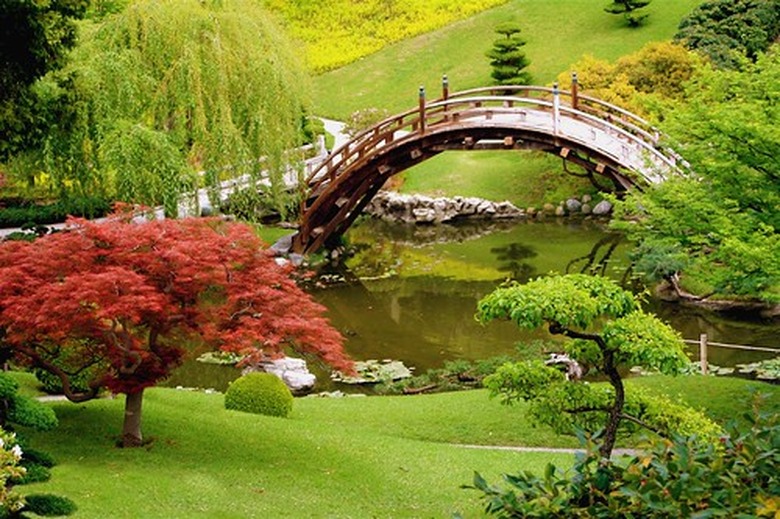Is A Japanese Maple Tree Toxic?
Japanese maple trees are charming small maples with decorative leaves and astonishing and dramatic fall color. They fit nicely into a small garden. Despite their fiery leaves in autumn, no part of the tree is toxic to humans or domestic animals — except horses. In fact, the tree's leaves are eaten as part of some Japanese dishes and have no adverse health effects.
Japanese Maple Trees
Japanese maples (Acer palmatum) are native to Japan, Korea and China. Gardeners and horticulturists prize these trees for their autumn colors and beautiful foliage. Japanese maples are typically small and perfect for small gardens or for growing in containers. Tree experts often refer to them as Acers.
There are more than 1,000 cultivars of Japanese maple trees. Similar species include Acer duplicatoserratum, Acer japonicum (Downy Japanese maple), Acer pseudosieboldianum (Korean maple), Acer shirasawanum (Fullmoon maple), and Acer sieboldianum (Siebold's maple).
Toxicity of Japanese Maples
The rumors that Japanese maple are toxic might come from the fact that a fungus that grows on red maple tree bark is toxic. However, Japanese maples are a different genus than red maple, and the fungus does not attack them.
None of these organizations list the Japanese maple or any of its similar species as toxic: ASPCA, Cat Fanciers Association (CFA), University of Illinois Veterinary Medicine Library and Cornell University's Department of Animal Sciences. However, it has been confirmed that red maple is toxic to horses. This has led some to consider all maple trees toxic; however, there have been no reports of Japanese maples being toxic to other animals or humans.
